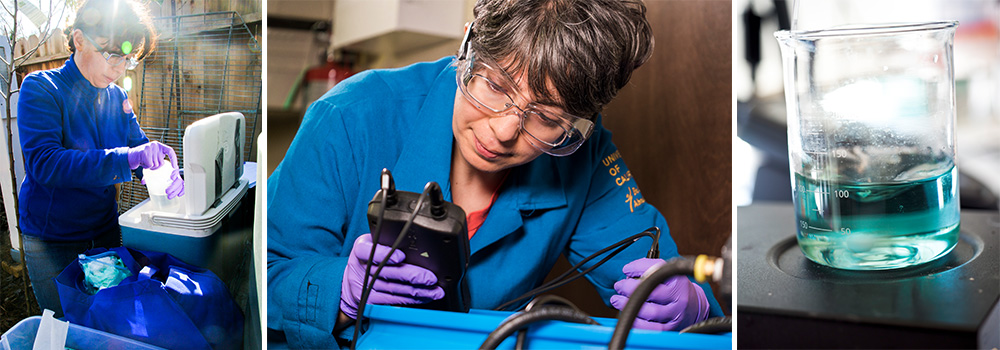
Problem
There is a huge potential for evaporative cooling systems to reduce both peak electricity demand and energy use in California’s hot and dry climate, however the technology is not widely used. Two reasons for this are concerns about equipment maintenance and longevity, and water use in drought-prevalent California.
Solution
Water management of evaporative cooling units is essential and particular care must be taken to reduce the effects of hard water on the system, often resulting in the use of additional water (or a bleed-off) to reduce mineral precipitation and maintain longevity.
Goal and Results
2018
With funding from Southern California Edison, WCEC tested four representative water compositions in California, that varied in their pH and mineral content, with four different bleed rates to determine the impact on mineral deposits in the system. Researchers also investigated whether evaporative cooling makes sense in California by analyzing a worst-case scenario where water used for evaporative cooling was produced using desalination, an energy intensive process. Finally, WCEC analyzed the potential for using rainwater in evaporative cooling systems.
In examining water composition and bleed rates, WCEC found that: 1) the pH of the inlet water does not impact mineral deposition significantly and 2) increasing the bleed rate beyond roughly 15% does not reduce deposited minerals for high-mineral-content water, and the deposition decreases are probably immaterial for low-mineral water. Researchers also found that evaporative cooling does make sense in California, even when desalinated water is used. Investing 1 kWh of electricity into desalination, followed by reinvesting that water in evaporative condensers, yielded roughly 7 kWh of electricity savings (including 15% maintenance water usage).
WCEC also found that, in most California locations, enough rainwater can regularly be captured and stored to cool a single-family home with an evaporative condenser.
Publications and Downloads
- Does Evaporative Cooling Make Sense in Arid Climates? (Webinar Presentation, 2016)
- Does Evaporative Cooling Make Sense in Arid Climates? (Webinar Presentation Slides PDF, 2016)
- Reducing Maintenance-Water Consumption in Evaporative Cooling Equipment (ASHRAE Presentation Slides PDF, 2013)
- Water Treatment and Management for Evaporatively Cooled Condensers (Report, 2012)
- Water-use Efficiency for Alternative Cooling Technologies in Arid Climates (Journal Article, 2011)
